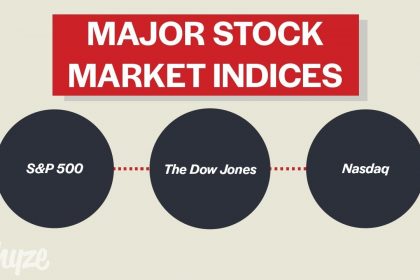What are Equity Indices

This post covers an Equity Index, its composition and other aspects. Factors affecting index value are
covered as well.
Intro to Equity Market
Any new business is in dire need of funds. The critical cash is required for consolidating and expanding
the entity. The phase of R&D commences through which existing processes and products are improved.
Innovative services and goods are produced from this investment.
Sources of Financing
Any emerging business mainly relies upon 2 sources of raising funds:-
1. Debt:-
Financial lending institutions are approached to raise funds. There are two main drawbacks to this
option. First, the business has to provide some tangible collateral / security to obtain loan. This is at
times impossible to arrange. Secondly, interest has to be paid on debt / loan, irrespective of
whether the business earns a profit or not.
Including debt in the financing of business increases its flight weight. It often results in businesses
going bankrupt even before takeoff. Most entities avoid including debt in the infancy stage.
2. Equity:-
A promising business startup lists itself on the equity / stock market. It sells its business model to the
general public and invites them to become shareholders. If the masses see promising prospects in
the company, they buy its shares / stock. In turn, the company gets much needed funds. The stock
buyers become stakeholders in that company.
The advantage of including equity is that the business is not bound to pay any interest on this
money. Shareholders are paid only if the business makes a profit. The other imminent advantage for
stock holders is capital gains. If an entity earns good profits, its stock soars in the equity market.
What is an Equity Index?
There are countless listed companies on any stock exchange. At times, a single company is simultaneously
listed and traded on multiple exchanges. These companies belong to various sectors. Some may be
involved in manufacturing while others are in services.
This diversity presents a challenge for active equity traders. One such trader may only be interested in
stocks of oil marketing companies. Another trader might be involved in stocks of only tech companies.
This resulted in the need for equity indices.
An equity index does not have any intrinsic value; rather its value is derived from its constituent stocks.
Let’s assume a technology stock index. This index is comprised solely of tech companies stocks. After
defining qualifying criteria for an index, relevant stocks fulfilling it are added to that index.
Common Criteria for an Index
1. Capitalization Based
This type of index is independent of sectors of its constituent stocks. It may include a tech stock as
well as service sector firm. If the company’s market cap is more than a defined threshold, it qualifies
to be included in that index. Each constituent stock is awarded a weight-age in such index directly proportional to market cap. Higher a stock’s cap, greater is its weight.
2. Sector Based
This index is composed of stocks belonging to a predefined sector. For instance a tech related index
will be composed entirely of technology stocks. Another service sector index will be composed
entirely of stocks of companies providing services.
How Index Value Changes
The value of any index changes with fluctuation in the stock price of its constituent stocks. If price of most
stocks in an index is on the rise, the value of index will appreciate and vice versa. The change in index
value will be proportionate to the weight of each stock in that index.
Advantage of Trading an Index
There is an incentive in trading an index instead of individual stocks. A single stock is highly prone to
volatile price swings. They are caused due to rapid changes in the market sentiment. Perception of
majority traders also affects stock price. The short to medium term future outlook of the company also
leaves an impact.
Since an index is composed of many stocks, it is quite well immune from factors affecting the price of
individual stocks. Therefore, an index is a far more reliable gauge for a particular sector instead of any
individual company’s stock no matter how reputed.
How is Equities Index Traded?
All major exchanges allow trade in equity indices. Futures contracts exist for such indices. Traders may
take long (buy) or short (sell) positions in any index of their liking based on their future assessment.
Margin trading facility is also extended for trading indices.

